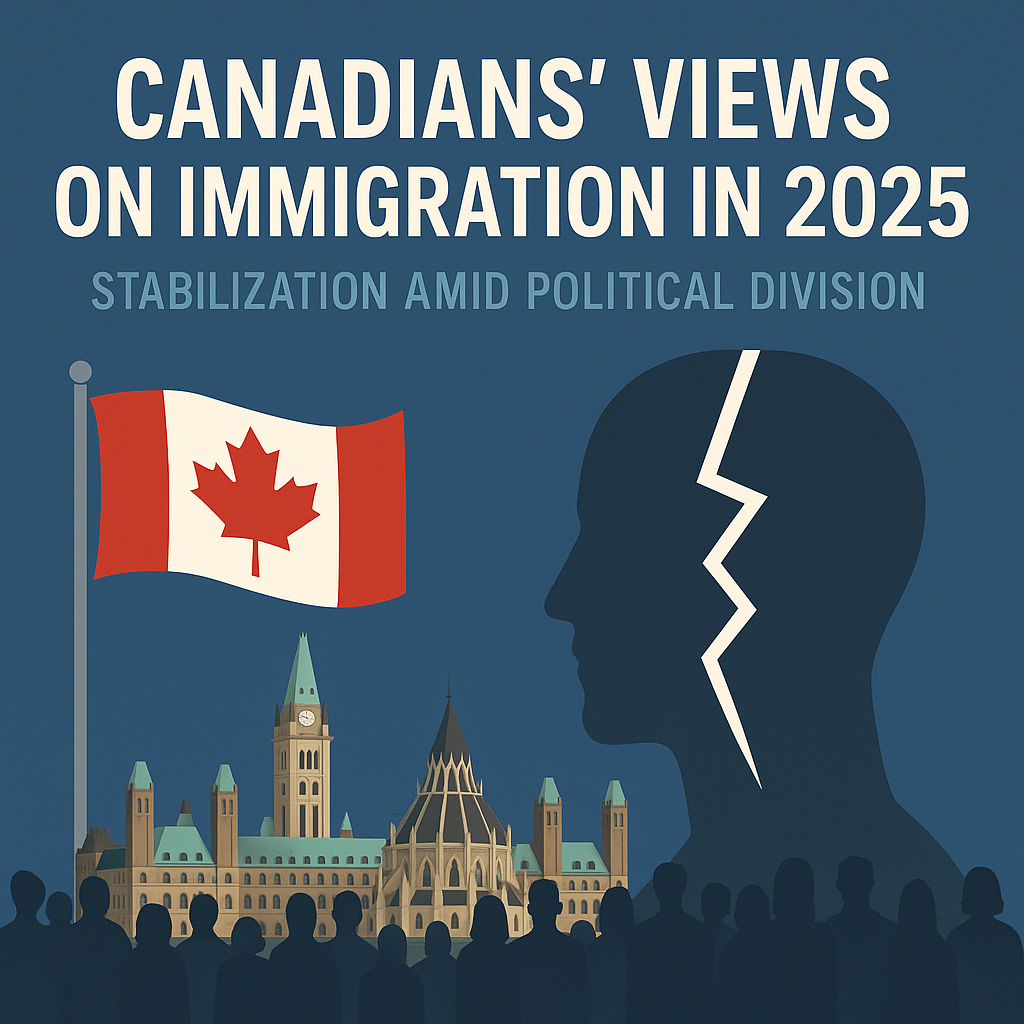The Environics Institute’s Focus Canada 2025 survey offers an illuminating snapshot of how Canadians are feeling about immigration and refugees in a year marked by global uncertainty and domestic change. Conducted in partnership with Toronto Metropolitan University’s Diversity Institute and supported by the Century Initiative, the study surveyed 2,004 Canadians between September 8 and 21, 2025, with a margin of error of ±2.2%.
A Challenging Year for Canada
For decades, immigration has been a cornerstone of Canada’s demographic and economic strategy, offsetting aging populations and labour shortages. In 2025, this policy imperative continues—but not without tension. The rapid growth in both permanent and temporary residents has generated debates about Canada’s absorptive capacity, housing affordability, and government management.
The broader geopolitical landscape has also shifted. The return of Donald Trump to the U.S. presidency has strained Canada–U.S. relations, influencing trade, security, and migration cooperation. Domestically, a newly elected Liberal Prime Minister faces the daunting task of maintaining public confidence while responding to calls for reform in immigration and refugee management. Canadians are increasingly asserting an independent stance in foreign and economic policy, seeking to balance openness with sovereignty and sustainability.
Public Opinion Levels Off
After several years of mounting skepticism, public opinion appears to have stabilized. More than half (56%) of Canadians now believe the country accepts “too many” immigrants—a modest two-point decline from 2024. This suggests not a reversal but a pause in the growing unease witnessed between 2022 and 2024.
Regional Differences
- Quebec continues to express heightened concern, reflecting anxiety over linguistic and cultural preservation.
- Ontario, buoyed by economic growth and urban diversity, has become slightly more supportive.
- Alberta leads in opposition, with two-thirds saying immigration levels are too high—reflecting economic pressures and political conservatism.
- Manitoba and Saskatchewan show a softening of views, potentially due to visible benefits of newcomer contributions in regional labour markets.
This regional mosaic underscores that immigration is not a monolithic issue; it is deeply tied to local economic conditions, political cultures, and demographic realities.
Shifting Concerns: From Numbers to Management
A key finding of the 2025 survey is that Canadians’ primary concern has shifted from cultural or identity-based fears toward questions of governance and capacity. Many respondents now believe that the issue is not immigration itself, but how it is managed and integrated.
The top cited concerns include:
- Housing affordability and shortages, where immigrants are often—unfairly—scapegoated for structural issues in supply and planning.
- Job market competition, particularly in lower-wage and entry-level sectors.
- Strain on public finances and social services, including healthcare and education.
While cultural anxieties—such as fears of losing “Canadian values”—remain, they have become less dominant than in previous decades. This evolution suggests a maturing public discourse, where economic and policy critiques overshadow identity-based resentment.

